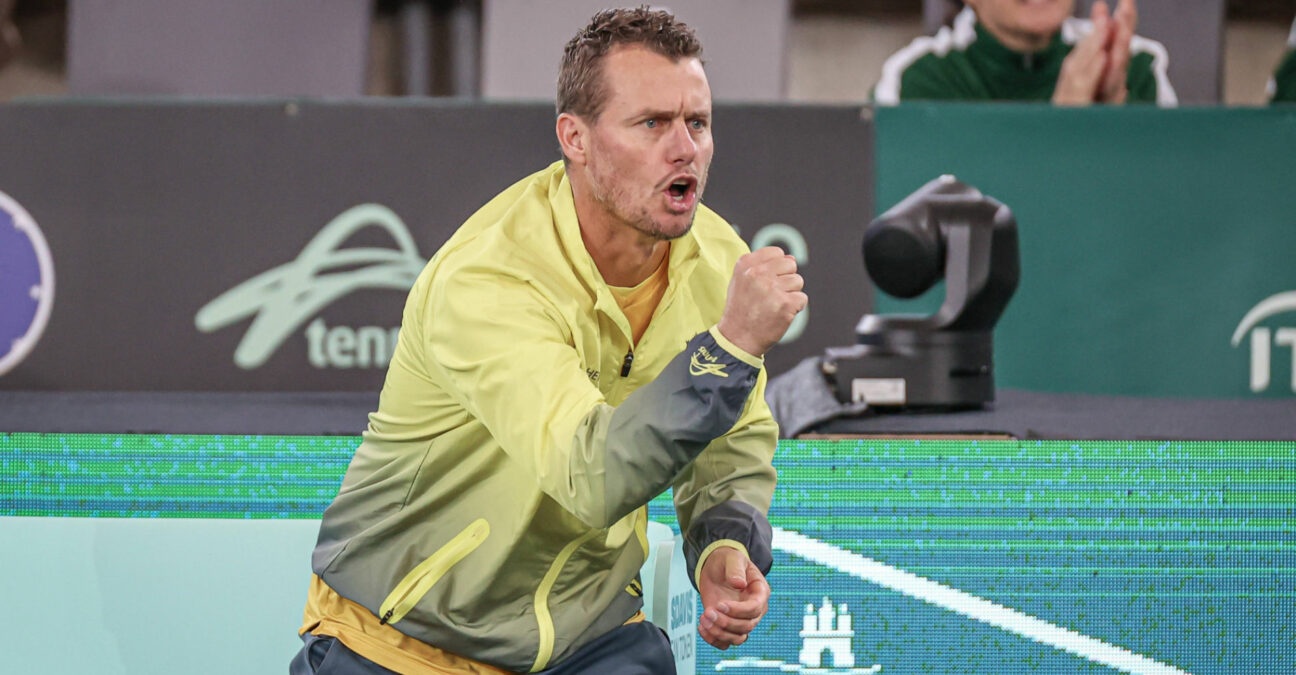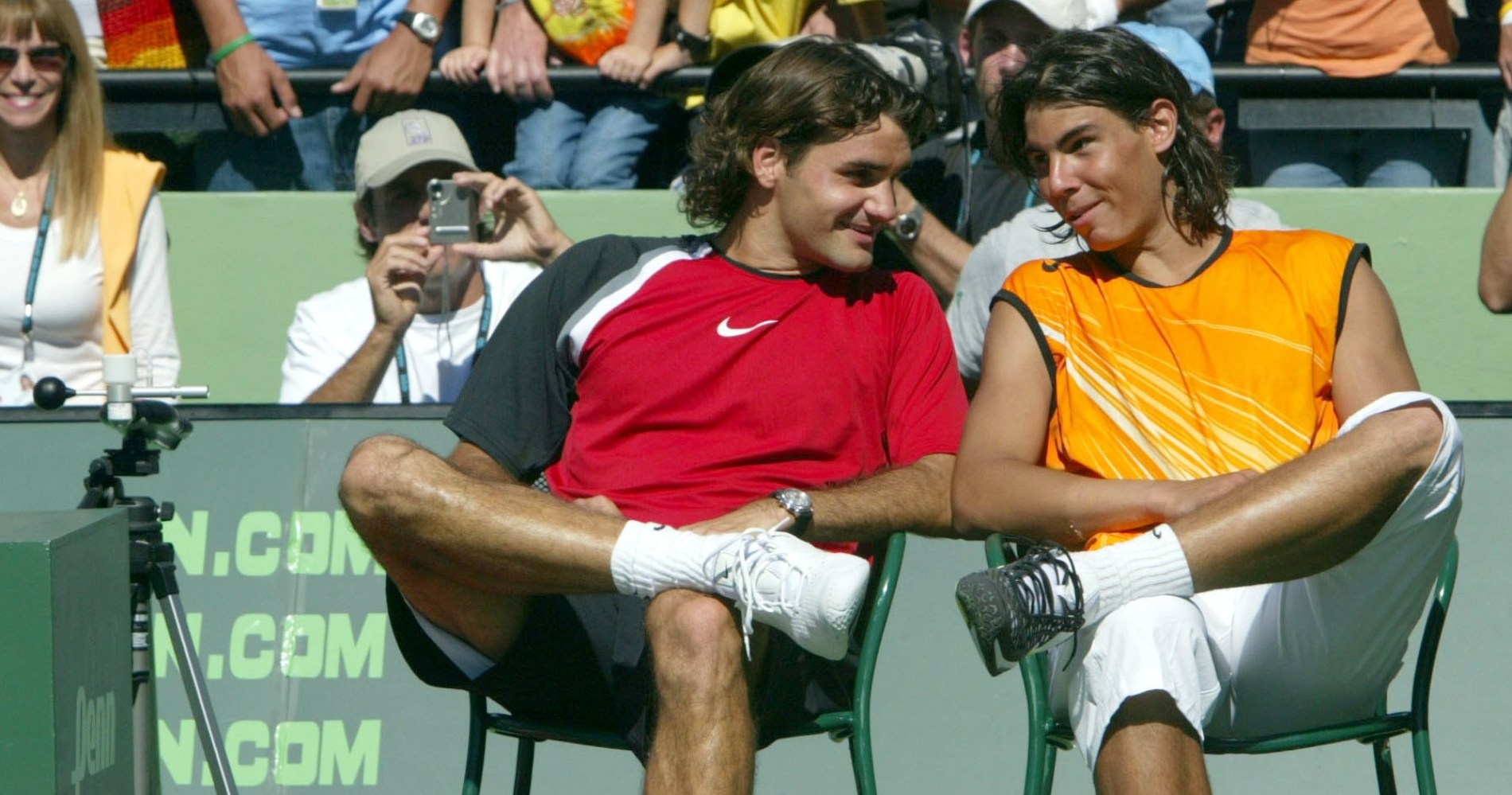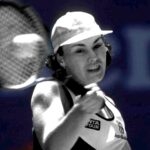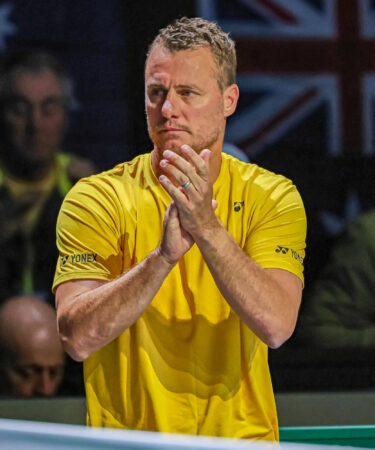Davis Cup officials happy with format, but Hewitt offers different opinion following Australia’s loss in final
Australian Davis Cup captain Lleyton Hewitt watched his team lose in the final on Sunday and afterward expressed his desire for a format change to the competition.
 Lleyton Hewitt at the 2022 Davis Cup
Image Credit: Imago / Panoramic
Lleyton Hewitt at the 2022 Davis Cup
Image Credit: Imago / Panoramic
In the third installment of the Davis Cup Finals following a drastic reorganization of the event prior to the 2019 season, Canada triumphed for the first time in its history by beating Australia in the championship match. The Canadians swept the Aussies 2-0 on Sunday afternoon in Malaga, Spain behind singles victories from Denis Shapovalov and Felix Auger-Aliassime.
Afterward, Kosmos Tennis CEO Enric Rojas ITF president David Haggerty expressed their satisfaction with the current Davis Cup format — a subject of much controversy since the seismic shift in the competition dating back to 2019.
Prior to the change, Davis Cup ties were best-of-five with four singles matches — two per day — and one doubles rubber taking place across three days. Now the ties are best-of-three with two singles matches and if those rubbers are split then a decisive doubles rubber becomes necessary. After the qualifying rounds conclude, the Davis Cup Finals knockout stages are at neutral locations. In the Davis Cup of old, all ties were played on one of the participating team’s home courts.
The length of the ATP calendar is one reason why it was difficult to make the old format viable.
“The current format is staying,” Rojas assured. “[It will] remain. I don’t expect any change at the close future. I think that in the partnership that we got with the ATP, we have (made it) very clear the weeks of the Davis Cup. There is not too much room for changing that. We don’t want to change it, actually. But to be honest with you, I don’t expect any change in short term.”
“I think just to reinforce, I think that we are very, very happy with the format and the changes that we have now,” Haggerty added. “It doesn’t mean that sometime in the future we couldn’t consider, but we feel the most important thing is to stabilize. The players like this; they have told us that. They like the two singles and the one doubles. It works at the time of the seasons that we play.”
Lleyton Hewitt: “Band-Aids are not fixing the problem”
Australia team captain Lleyton Hewitt, who helped his nation reach the final in 2001 and win the title in 2003, disagrees.
“Everyone knows my feelings,” Hewitt said following Sunday’s loss. “Coming here this week I felt disappointed for the Dutch team, for example. They’ve got two quality doubles players and they do all the hard work all year to come and perform in the so-called biggest stage of the year, and they don’t get the chance to play a match. I thought that’s a failing in this concept the whole time, and no one is listening.
“So I can talk till I’m blue in the face, but nothing’s changing right now. We just keep putting Band-Aids…well, we don’t, but certain people put Band-Aids on problems. It’s not fixing the problem. I can’t imagine, for the life of me…I came up playing with the best doubles team in the world, the Woodies, at the time. They come into this format and they don’t get to play a match? And they have made that a massive priority? I don’t think that’s right.”
Australia beat the Netherlands 2-0 in the quarter-finals, so there was no doubles rubber. Only in the quarter-finals did the Aussies require doubles, as they defeated Croatia 2-1 after the singles matches were split.
People in this post
More tennis news
Federer vs Nadal: GOAT, head-to-head, stats, all you need to know about the rivalry

World No 1, Poland, streak, Olympics: Everything you always wanted to know about Iga Swiatek (but never had time to find out) – updated after Billie Jean King Cup 2024

November 21, 1999: The day Lindsay Davenport defeated Martina Hingis to win the season-ending WTA Championships

LP Open by IND: Maristany Zuleta De Reales reaches last eight

LP Open by IND: Jorge beats Pigossi to book spot in last eight





